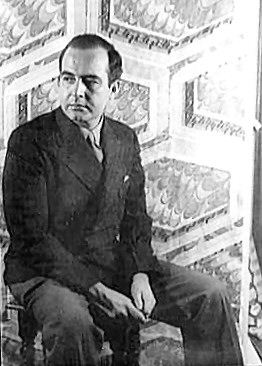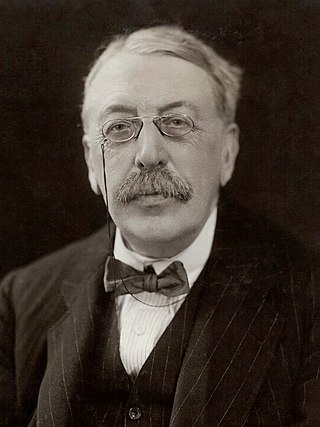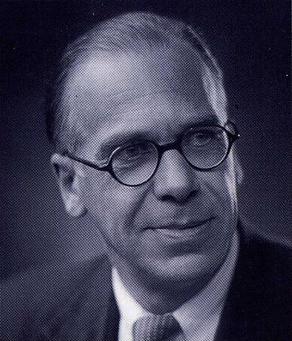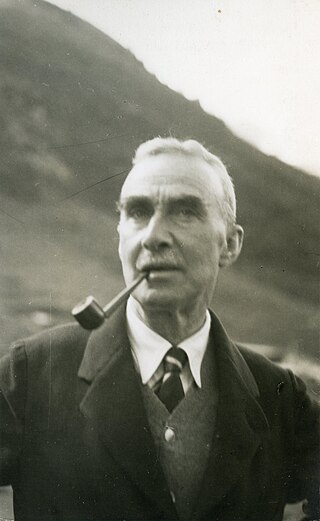Related Research Articles

Samuel Osmond Barber II was an American composer, pianist, conductor, baritone, and music educator, and one of the most celebrated composers of the 20th century. The music critic Donal Henahan said, "Probably no other American composer has ever enjoyed such early, such persistent and such long-lasting acclaim." Principally influenced by nine years' composition studies with Rosario Scalero at the Curtis Institute and more than 25 years' study with his uncle, the composer Sidney Homer, Barber's music usually eschewed the experimental trends of musical modernism in favor of traditional 19th-century harmonic language and formal structure embracing lyricism and emotional expression. However, he adopted elements of modernism after 1940 in some of his compositions, such as an increased use of dissonance and chromaticism in the Cello Concerto (1945) and Medea's Dance of Vengeance (1955); and the use of tonal ambiguity and a narrow use of serialism in his Piano Sonata (1949), Prayers of Kierkegaard (1954), and Nocturne (1959).

Charles-Marie-Jean-Albert Widor was a French organist, composer and teacher of the late Romantic era. As a composer he is known for his ten organ symphonies, especially the toccata of his fifth organ symphony, which is frequently played as recessional music at weddings and other celebrations.

Sir Donald Francis Tovey was a British musical analyst, musicologist, writer on music, composer, conductor and pianist. He had been best known for his Essays in Musical Analysis and his editions of works by Bach and Beethoven, but since the 1990s his compositions have been recorded and performed with increasing frequency. The recordings have mostly been well received by reviewers.

Sir Charles Villiers Stanford was an Anglo-Irish composer, music teacher, and conductor of the late Romantic era. Born to a well-off and highly musical family in Dublin, Stanford was educated at the University of Cambridge before studying music in Leipzig and Berlin. He was instrumental in raising the status of the Cambridge University Musical Society, attracting international stars to perform with it.

Charles Wood was an Irish composer and teacher; his students included Ralph Vaughan Williams at Cambridge and Herbert Howells at the Royal College of Music. He is primarily remembered and performed as an Anglican church music composer, but he also wrote songs and chamber music, particularly for string quartet.

David Conte is an American composer who has written over 150 works published by E.C. Schirmer, including six operas, a musical, works for chorus, solo voice, orchestra, chamber music, organ, piano, guitar, and harp. Conte has received commissions from Chanticleer, the San Francisco Symphony Chorus, Harvard University Chorus, the Men’s Glee Clubs of Cornell University and the University of Notre Dame, GALA Choruses from the cities of San Francisco, New York, Boston, Atlanta, Seattle, and Washington, D.C., the Dayton Philharmonic, the Oakland Symphony, the Stockton Symphony, the Atlantic Classical Orchestra, the American Guild of Organists, Sonoma City Opera, and the Gerbode Foundation. He was honored with the American Choral Directors Association (ACDA) Brock Commission in 2007 for his work The Nine Muses, and in 2016 he won the National Association of Teachers of Singing (NATS) Art Song Composition Award for his work American Death Ballads.

William Alwyn, was an English composer, conductor, and music teacher.

Salomon Jadassohn was a German pianist, composer, and teacher at the Leipzig Conservatory.

Dudley Buck was an American composer, organist, and writer on music. He published several books, most notably the Dictionary of Musical Terms and Influence of the Organ in History, which was published in New York City in 1882.

Eugen Suchoň was one of the most important Slovak composers of the 20th century.
Ronald Center was a Scottish composer.

Cyril Bradley Rootham was an English composer, educator and organist. His work at Cambridge University made him an influential figure in English music life. A Fellow of St John's College, where he was also organist, Rootham ran the Cambridge University Musical Society, whose innovative concert programming helped form English musical tastes of the time. One of his students was the younger composer Arthur Bliss, who valued his tuition in orchestration. Rootham's own compositions include two symphonies and several smaller orchestral pieces, an opera, chamber music, and many choral settings. Among his solo songs are some settings of verses by Siegfried Sassoon which were made in co-operation with the poet.

Reginald Owen Morris, known professionally and by his friends by his initials, as R.O. Morris, was a British composer and teacher.

Bernard Hélène Joseph van Dieren was a Dutch composer, critic, author, and writer on music, much of whose working life was spent in England.

Ebenezer Prout was an English musical theorist, writer, music teacher and composer, whose instruction, afterwards embodied in a series of standard works still used today, underpinned the work of many British classical musicians of succeeding generations.

Edwin Henry Lemare was an English organist and composer who lived the latter part of his life in the United States. He was one of the most highly regarded and highly paid organists of his generation, as well as the greatest performer and one of the most important composers of the late Romantic English-American Organ School.
Joseph Callaerts was a Belgian organist, carillonneur, composer and music teacher. He was an important member of the Belgian school of organ playing.
Arthur Willner was a Czech composer and teacher.

Conrad Baden was a Norwegian organist, composer, music educator, and music critic. He had an extensive production of orchestral works, chamber music, vocal works and church music.
References
- ↑ Biography, Toccata Classics
- 1 2 Philp Spratley biography, Bardic Edition
- ↑ David Occomore and Philip Spratley. Bushes and Briars: An anthology of Essex folk songs (1979)
- ↑ Philip Spratley at Toccata Classics
- ↑ Philip Spratley: Orchestral Works Vol. 1 and Vol. 2 , reviewed at MusicWeb International